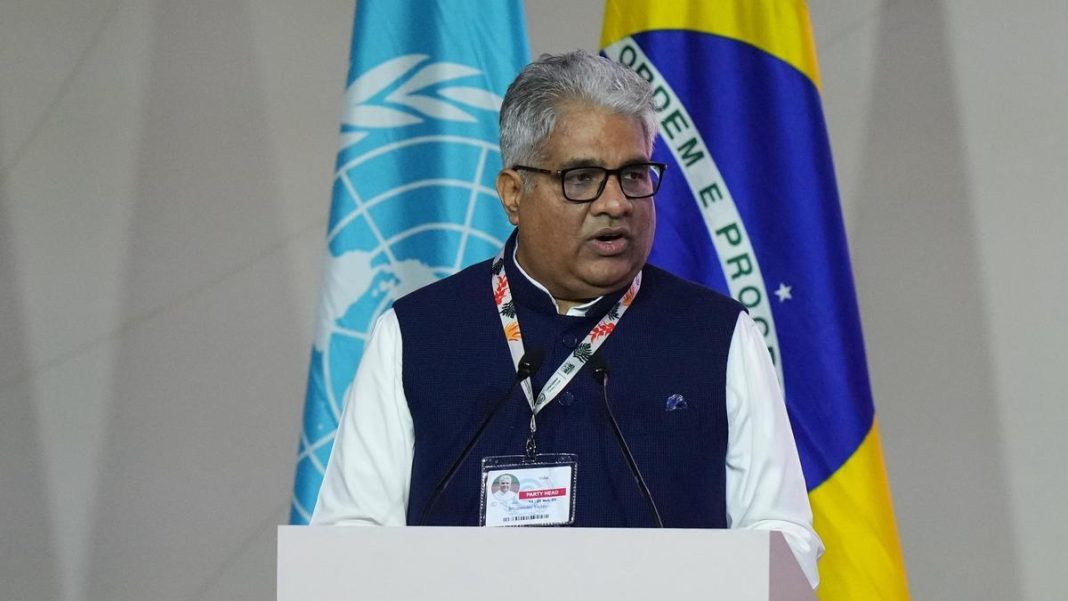India, a key player in global climate negotiations, has officially extended its “strong support” to Brazil as the South American nation prepares to host the crucial 30th Conference of the Parties (COP30) to the UN Framework Convention on Climate Change (UNFCCC) in 2025. This significant endorsement comes alongside India’s expressed satisfaction with many of the outcomes from recent international climate summits, signaling a pragmatic yet ambitious approach to global climate action.
The announcement underscores the growing alignment between two of the world’s largest developing economies on critical environmental issues, particularly as both navigate the complexities of economic growth and climate responsibility. Brazil’s Amazonian city of Belém will be the stage for COP30, an event that promises to bring the unique perspectives of the Global South to the forefront of climate diplomacy.
India’s Strong Endorsement for COP30 Host
India’s pledge of strong support for Brazil’s COP30 presidency is more than just diplomatic courtesy; it reflects a shared understanding of the challenges and opportunities facing developing nations in the climate discourse. Both India and Brazil have historically advocated for the principles of Common but Differentiated Responsibilities and Respective Capabilities (CBDR-RC), emphasizing that developed nations bear a greater historical responsibility and possess greater financial and technological capacity to address climate change.
The bilateral cooperation between these two BRICS and G20 members is crucial for shaping a constructive agenda for COP30. With Belém situated in the Amazon basin, the summit is expected to place a strong emphasis on issues like forest protection, biodiversity, and the rights of indigenous communities – areas where India, with its vast forest cover and diverse ecosystems, shares common ground and experiences. India’s backing will likely translate into collaborative efforts to build consensus around equitable and just climate solutions, pushing for greater financial commitments from developed countries and facilitating technology transfer.
“Our partnership with Brazil on climate action is rooted in shared values and a common vision for a sustainable future,” stated a senior official from India’s Ministry of External Affairs, speaking on condition of anonymity. “We believe COP30 in Belém will be a pivotal moment for the Global South to champion an inclusive and equitable climate agenda. India is committed to working closely with Brazil to ensure its success, particularly in operationalizing commitments that benefit all nations.” This sentiment highlights India’s strategic interest in fostering South-South cooperation to counterbalance narratives often dominated by developed nations.
Satisfied with Summit Outcomes: A Pragmatic Outlook
India’s satisfaction with “many outcomes” from recent summits, particularly referencing COP28 in Dubai, points to several key developments that align with its long-standing negotiating positions. The operationalization of the Loss and Damage Fund, a mechanism to assist vulnerable countries in recovering from climate impacts, was a significant win for developing nations, a cause India has consistently championed.
Furthermore, the Global Goal on Adaptation (GGA) framework adopted at COP28, though still requiring further work on targets and metrics, also signals progress towards recognizing the critical importance of adaptation alongside mitigation. India has always stressed the need for a balanced approach, advocating for substantial financial support for adaptation measures in developing countries, given their disproportionate vulnerability to climate change impacts.
Another area of satisfaction for India likely stems from the continued emphasis on a “just transition” away from fossil fuels. While the language around phasing out fossil fuels has been a contentious point, the agreement to transition away from them in a “just, orderly and equitable manner” allows for national circumstances and energy security needs to be considered, which is crucial for energy-dependent economies like India. India’s own ambitious renewable energy targets and initiatives like the International Solar Alliance demonstrate its commitment to a clean energy future, even as it manages its developmental imperatives.
The push for enhanced climate finance and clearer pathways for meeting the $100 billion annual climate finance goal, alongside discussions on a new collective quantified goal (NCQG) post-2025, also resonates with India’s demands. India consistently highlights that developing nations require predictable and adequate financial support to implement their nationally determined contributions (NDCs).
Charting the Course Towards COP30
India’s strong support for Brazil and its nuanced satisfaction with past outcomes position it as a constructive force heading into COP30. The road to Belém will be paved with complex negotiations, particularly on issues of climate finance, technology transfer, and the finalization of a robust Global Stocktake process. India, alongside Brazil, will likely advocate for concrete, implementable outcomes that prioritize equity, address historical responsibilities, and genuinely empower developing nations to pursue sustainable development pathways.
The partnership between these two influential countries will be instrumental in shaping a global climate agenda that is not only ambitious but also fair and inclusive, ensuring that the burden of climate action is shared equitably and that the most vulnerable are not left behind. COP30 promises to be a defining moment for global climate action, and India’s proactive engagement underscores its commitment to a collaborative and impactful outcome.




